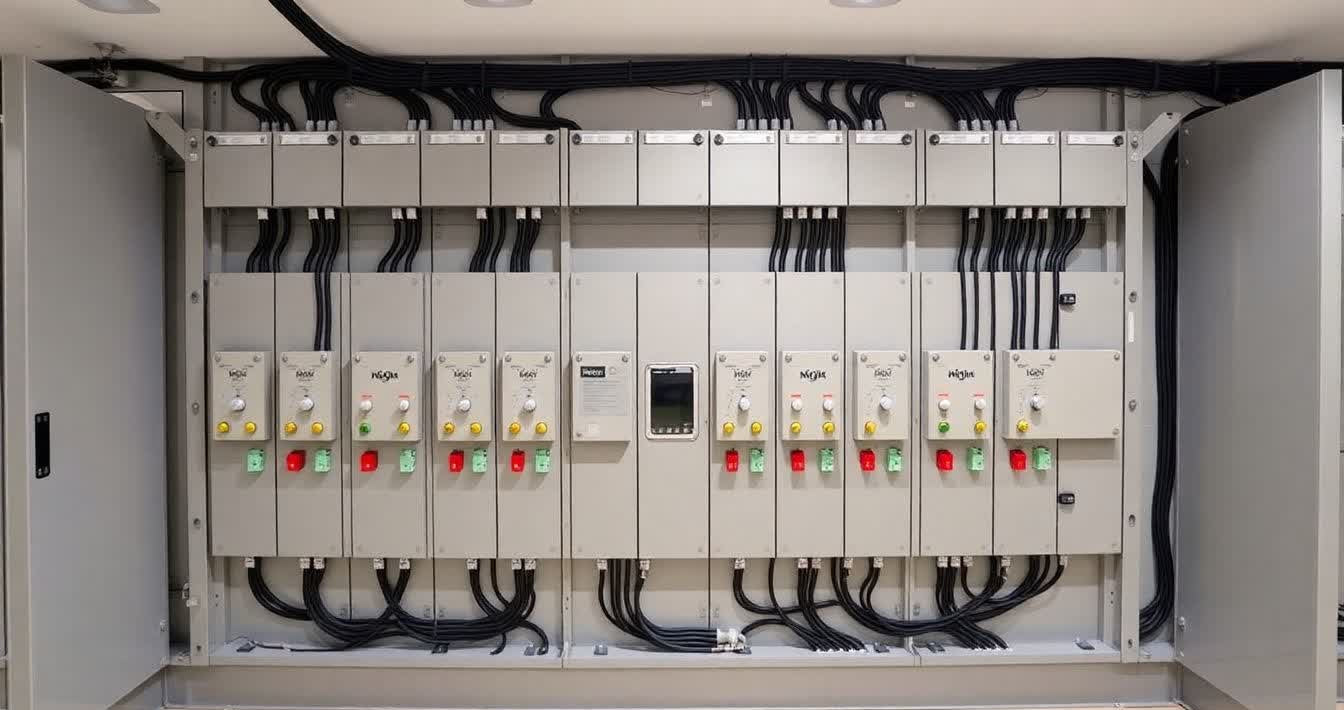
Debunking Common Myths About Electrical Panels and Circuit Breakers
Electrical panels and circuit breakers are essential components of any home or business’s electrical system. Despite their importance, they are often misunderstood, leading to myths and misconceptions that can compromise safety and efficiency. In this article, we’ll debunk some of the most common myths surrounding electrical panels and circuit breakers to help you better understand these critical systems.
Myth 1: "Circuit Breakers Only Trip When There’s a Problem with the Panel"
Reality : Circuit breakers trip for a variety of reasons, not just panel-related issues. Their primary function is to protect your electrical system from overloads, short circuits, and ground faults. For example, if too many appliances are plugged into a single circuit, the breaker will trip to prevent overheating and potential fire hazards. Similarly, a faulty appliance or damaged wiring can also cause a breaker to trip. It’s important to investigate the root cause rather than assuming the panel itself is defective.
Myth 2: "Older Electrical Panels Are Just as Safe as New Ones"
Reality : While older panels may still function, they are often outdated and lack modern safety features. For instance, many older panels do not have Arc Fault Circuit Interrupters (AFCIs) or Ground Fault Circuit Interrupters (GFCIs), which are now standard in preventing electrical fires and shocks. Additionally, aging panels can suffer from wear and tear, corrosion, or outdated designs that make them more prone to failure. Upgrading to a modern panel ensures compliance with current safety standards and provides peace of mind.
Myth 3: "You Can Fix a Tripped Breaker by Simply Resetting It"
Reality : While resetting a tripped breaker is often the first step, it’s not always a permanent solution. If the breaker trips repeatedly, it could indicate an underlying issue such as overloaded circuits, faulty wiring, or a malfunctioning appliance. Continuously resetting the breaker without addressing the root cause can lead to overheating, damage to the panel, or even electrical fires. Always consult a licensed electrician if a breaker trips frequently.
Myth 4: "Electrical Panels Don’t Require Maintenance"
Reality : Electrical panels require periodic inspections and maintenance to ensure safe and efficient operation. Over time, connections can loosen, components can corrode, and breakers can wear out. Regular maintenance by a qualified electrician can identify potential problems before they escalate into costly repairs or dangerous situations. Homeowners should also test AFCIs and GFCIs monthly to confirm they’re functioning properly.
Myth 5: "Bigger Panels Mean More Electricity Usage"
Reality : The size of your electrical panel does not directly affect electricity consumption. Instead, the panel’s capacity determines how many circuits and devices it can safely support. A larger panel simply allows for more circuits, providing flexibility for future expansions or additional appliances. Upgrading to a larger panel doesn’t mean you’ll use more electricity—it just ensures your system can handle increased demand without overloading.
Myth 6: "DIY Electrical Work Is Safe as Long as You’re Careful"
Reality : Electrical work is inherently dangerous and should always be left to licensed professionals. Even seemingly simple tasks like replacing a breaker or adding a new outlet can result in serious injuries, property damage, or violations of local building codes if done incorrectly. Professional electricians have the training, tools, and expertise to perform electrical work safely and effectively.
Myth 7: "Circuit Breakers Last Forever"
Reality : Like any mechanical component, circuit breakers have a limited lifespan. Over time, they can become less responsive due to wear and tear, corrosion, or exposure to heat. A failing breaker may not trip when it should, increasing the risk of electrical fires. Most experts recommend replacing breakers every 20-30 years or sooner if signs of malfunction appear.
Conclusion
Understanding the truth about electrical panels and circuit breakers is crucial for maintaining a safe and reliable electrical system. By debunking these common myths, homeowners and businesses can make informed decisions and avoid potentially hazardous mistakes. If you’re unsure about the condition of your electrical panel or need assistance with upgrades or repairs, don’t hesitate to consult a licensed electrician. Safety should always come first when dealing with electricity.